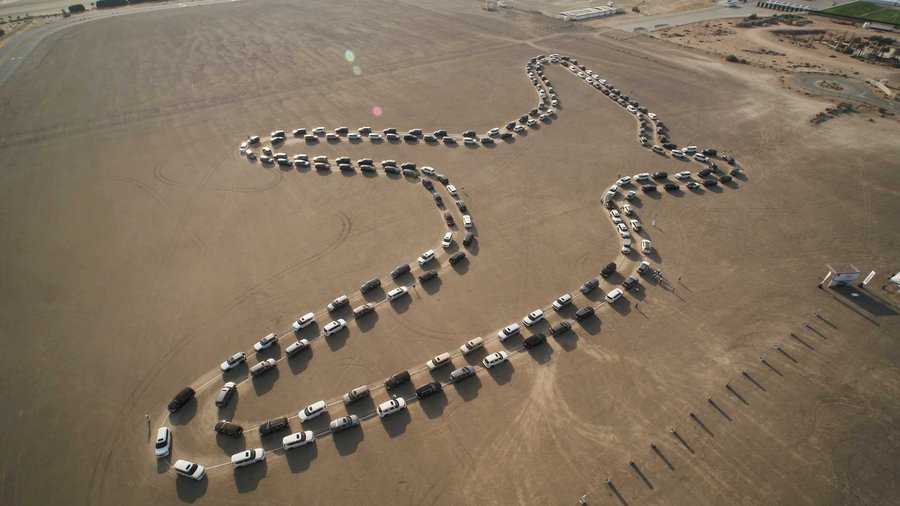Nissan Patrols Set New Record For Largest Synchronized Car Dance

Nissan Middle East is proud to announce it has broken yet another Guinness World Record. After setting the records for the fastest drift using a GT-R, the fastest car for climbing a 100-meter sand dune, and the heaviest airplane ever pulled by a production car, the company has organized what it describes as the largest synchronized car dance.
Of course, no one's dancing here, as we are talking about a large number of cars moving in unison within a formation and, in this case, a total of 180 Nissan Patrols were part of the record. They formed a giant desert falcon beating the previous record by 36 cars.
The queue with two concentric lines of cars driving on opposite directions was led by international racing driver Axcil Jefferies. Viewed from above, the shape formed by the 180 Patrols looked like "a giant falcon in flight over the sands of the Arabian desert." We should admit it is indeed a sight to behold.
"What makes this achievement even more special is the fact that everyone who took part in the record-breaking attempt was Nissan staff. It was a great privilege to give our employees the opportunity to take part in this landmark achievement. We were so pleased by the enthusiasm displayed by everyone, and single-minded determination they demonstrated towards achieving this goal," explained Juergen Schmitz, managing director of Nissan Middle East.
This is the third Guinness record for the Patrol. Back in September 2015, the off-roader (known on the U.S. market as the Armada) became the fastest car to climb a 328-feet (100-meter) sand dune. Two years before that, in August 2013, the Patrol successfully towed the world's heaviest aircraft for more than 154 feet (50 meters).
Sales of the Patrol in the Middle East since the beginning of the current fiscal year (April – September) are up by 30 percent.


